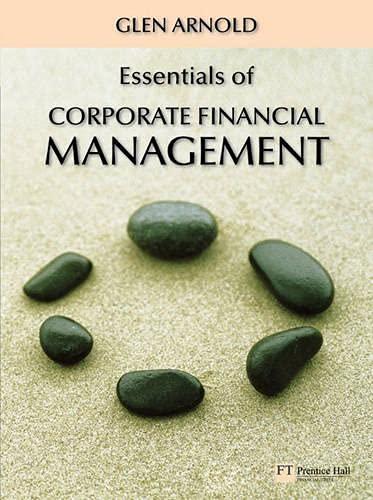
You are a market-maker who currently holds 100 shares. For each minute starting at t 1, an order arrives at your trading desk to either buy 100 shares from you (50 percent probability) or sell 100 shares to you (50 percent probability). Your algorithm automatically accepts every order. If you still have a positive share position at t = 8, then your algorithm will always place a market order to sell all of your shares. For simplicity, assume that your algorithm stops when your share position equals zero. a) In expectation, how many minutes does it take to return to the zero position? Note that it is not possible to return to the zero position at t = 2, t = 4 or t = 6 in this setup. The expected time to return to the zero position is calculated as follows: E(minutes to return to zero) Prob(return to zero at time t) x t Also note that the probability of returning to the zero position at t 8 equals one minus the sum of the probabilities of returning to the zero position at t-1, t-3, t-5, or t-7 b) Suppose that you widen your bid at t0 such that the probability of an order arriving to buy 100 shares from you is now 75 percent and the probability of an order arriving to sell 100 shares to you is now 25 percent. Assume that these probabilities will remain the same until you returr to the zero position. In expectation, how many minutes does it take to return to the zero position? You are a market-maker who currently holds 100 shares. For each minute starting at t 1, an order arrives at your trading desk to either buy 100 shares from you (50 percent probability) or sell 100 shares to you (50 percent probability). Your algorithm automatically accepts every order. If you still have a positive share position at t = 8, then your algorithm will always place a market order to sell all of your shares. For simplicity, assume that your algorithm stops when your share position equals zero. a) In expectation, how many minutes does it take to return to the zero position? Note that it is not possible to return to the zero position at t = 2, t = 4 or t = 6 in this setup. The expected time to return to the zero position is calculated as follows: E(minutes to return to zero) Prob(return to zero at time t) x t Also note that the probability of returning to the zero position at t 8 equals one minus the sum of the probabilities of returning to the zero position at t-1, t-3, t-5, or t-7 b) Suppose that you widen your bid at t0 such that the probability of an order arriving to buy 100 shares from you is now 75 percent and the probability of an order arriving to sell 100 shares to you is now 25 percent. Assume that these probabilities will remain the same until you returr to the zero position. In expectation, how many minutes does it take to return to the zero position







